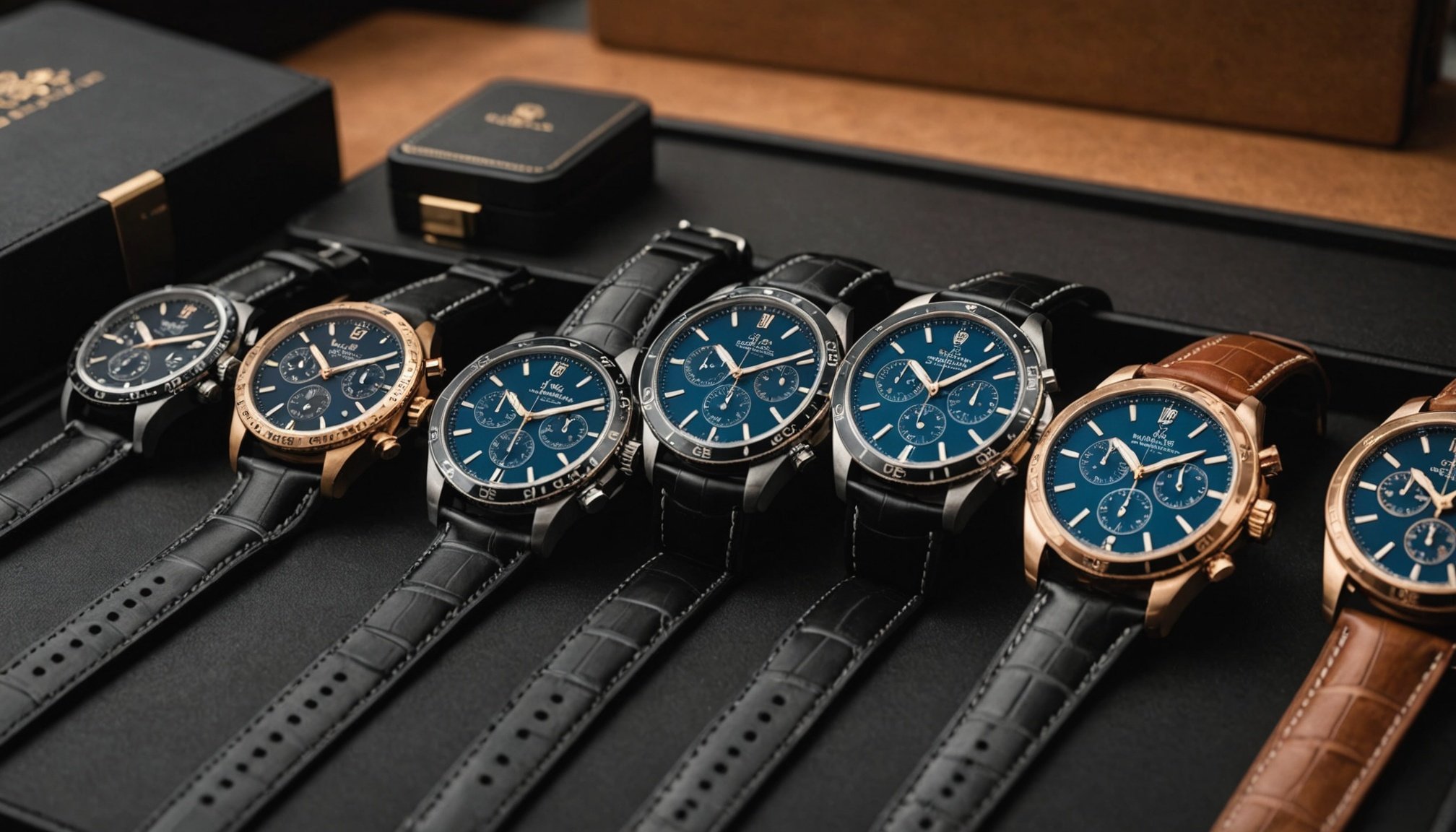Understanding UK Import Regulations
Navigating the UK import laws can be tricky, especially when it involves luxury goods like watches. The UK’s import regulatory framework is designed to ensure that all products entering the market meet certain standards and are properly documented. This means luxury watch compliance is crucial to avoid hefty fines or penalties.
Trade regulations in the UK require thorough knowledge of the involved processes and adherence to specific guidelines. Failing to meet compliance can result in delays, increased costs, or even confiscation of goods. Understanding these regulations is essential for ensuring smooth transactions and protecting your investment in luxury watches.
Topic to read : Mastering UK Intellectual Property Law: A Vital Guide for New Publishers
Key authorities such as HM Revenue and Customs (HMRC) and the Department for Business and Trade are involved in coordinating and enforcing these trade regulations. These bodies ensure that both imports and exports meet the legal requirements, promoting fair and safe trade practices.
For anyone importing luxury watches, familiarizing oneself with the legal landscape from both a compliance and practical standpoint is key. By engaging with official resources and seeking guidance from trade experts, you can enhance your business operations, making it easier and less stressful to navigate the often complex import system.
Topic to read : Mastering UK Liquor Licensing: Your Ultimate Guide to Launching a Successful Virtual Wine Tasting Business
Necessary Documentation for Importing Luxury Watches
Navigating the world of luxury watch shipping requires understanding vital import documents involved in the process. Proper documentation is key to a seamless import experience. Here is a detailed explanation of essential documents that should accompany your shipments:
-
Customs Declarations: These are mandatory for declaring the goods you’re importing. Accurate descriptions and valuations of your luxury watches must be provided to facilitate proper import clearance. Failing to provide correct information can lead to shipment delays or even penalties.
-
Invoices: Comprehensive invoices detailing the watch’s price, origin, and specifications are essential. Customs officials rely on these documents to assess applicable import tariffs and ensure you’re adhering to laws.
Maintaining accurate and thorough records of customs paperwork is crucial. Not only do these documents smooth the customs process, but they also provide an audit trail. This can be invaluable if discrepancies arise, prompting authorities to review the importation.
Furthermore, having well-organized documentation assists in addressing any import pitfalls and compliance challenges. From ensuring proper tax payment to avoiding legal pitfalls, indirect benefits extend to building trust with customs authorities, streamlining future imports. Proper adherence to customs paperwork standards effectively mitigates risks, enhancing operational efficiency.
Tariffs and Customs Duties Applicable to Luxury Watches
Import tariffs and customs duties significantly impact the overall cost of acquiring luxury watches from abroad. Understanding how these charges are applied is essential to managing your import budget effectively. Import tariffs for luxury watches vary based on several factors, including the watch’s type, origin, and value. Generally, the UK applies tariffs according to the Harmonized System Code, ensuring each product category is taxed appropriately.
Customs duties are calculated by evaluating the luxury watch’s worth, typically including the watch price, insurance, and freight costs. These costs can accumulate, adding a substantial amount to the initial price. Therefore, it’s crucial for importers to accurately declare these values to avoid unfairly inflated charges or penalties.
To minimise tariff costs, consider the following strategies:
- Use of preferential trade agreements: Leveraging agreements between the UK and certain countries can sometimes reduce tariffs.
- Engage a customs broker: This expert can help navigate complex tariff structures and optimise duty payments.
- Classify products correctly: Ensuring the right product codes are used can prevent unnecessary charges.
By accurately calculating tariffs and employing strategic measures, luxury watch importers can manage costs effectively and avoid unexpected expenses.
Customs Procedures and Processes
The customs process for importing luxury watches demands meticulous planning to ensure smooth import clearance. It begins with preparing all necessary documentation, including customs declarations, commercial invoices, and valuation documents. These records must be submitted to UK Customs for review.
Once the import clearance phase commences, the submitted paperwork undergoes scrutiny to verify compliance with UK regulations. During this phase, calculating and paying applicable customs duties is essential to proceed without hiccups. A thorough understanding of the luxury watch shipping procedures can help prevent delays.
Common challenges include misclassification of goods, incorrect HS codes, or incomplete documentation. Such errors can exacerbate delays and increase costs. Addressing these issues promptly and ensuring all customs paperwork is in order assists in mitigating these risks.
To streamline the customs process for luxury watches, consider these strategies:
- Pre-clearance audits: Conduct a thorough review of documentation before submission.
- Leverage technology: Use sophisticated tracking and management systems to monitor shipments.
- Engage with customs experts: Hiring customs brokers or consultants knowledgeable in luxury watch shipping procedures can offer significant benefits.
By employing these strategies, importers can enhance efficiency and elevate their operations.
Compliance Pitfalls to Avoid
When engaging in luxury watch imports, avoiding common compliance challenges is crucial. One prevalent pitfall is overlooking the complexity of import pitfalls related to misclassification, which can lead to incorrect tariffs. Ensuring accurate classification according to the Harmonized System Code helps prevent such errors.
Case studies highlight both triumphs and downfalls in luxury watch imports. For instance, one retailer faced substantial penalties due to using incorrect product codes, while another saw success by investing in compliance education and expert consultations. These examples underscore the importance of understanding and navigating the regulatory landscape effectively.
Adopting best practices is essential for maintaining compliance with UK regulations. Consider regularly auditing import processes to identify potential weak spots. Working closely with customs brokers or consultants not only aids in understanding complex requirements but also ensures efficient handling of documentation and duties. By maintaining thorough records and being proactive, importers can avoid legal repercussions and financial losses.
For luxury watch retailers, continuous learning is indispensable for staying current with changes in import regulations. This ensures they can adjust their compliance strategies and optimize their logistics operations, enabling smoother import experiences while mitigating risks associated with inconsistencies or errors.
Best Practices for Successful Importation
Managing the importation of luxury watches requires strategic planning and meticulous execution. One major aspect is selecting reliable shipping partners. A reputable partner can ensure timely delivery and secure handling of valuable goods. Their experience in navigating international logistics can greatly enhance your import efficiency.
Another critical factor is maintaining proactive communication with customs authorities. Being transparent and cooperative during the import process fosters trust and expedites import clearance. Regular updates and prompt responses to inquiries can prevent unnecessary delays.
In the era of digitalisation, leveraging technology and software is essential for effective import management. Implementing robust import management systems can streamline documentation, track shipments in real time, and automate compliance checks. These tools help alleviate workload and improve accuracy, ensuring adherence to import regulations.
Key shipping strategies include optimising packaging to minimise freight costs and choosing the most efficient transport modes. These strategies can significantly cut costs and enhance overall logistics.
Finally, constantly review and adjust your logistics processes. Supply chain dynamics are continually evolving, and staying agile and informed is crucial. Importing luxury watches is complex, but adopting best practices can reduce risks, optimise costs, and ensure a smooth import experience.
Resources and Tools for Luxury Watch Retailers
Equipping yourself with the right import resources and compliance tools is essential for navigating the complexities of the luxury watch industry. Numerous resources are available to keep retailers updated and informed about changing regulations. These include access to government websites, industry newsletters, and regulatory forums, which provide critical insights and updates on luxury watch industry guidelines.
Investing in reliable software solutions can streamline your import process significantly. Import management software can automate tasks such as documentation preparation, compliance checks, and shipment tracking. These tools not only enhance efficiency but also minimise errors, ensuring adherence to ever-evolving import laws.
Networking within the luxury watch industry can prove invaluable. Industry associations and networks offer a wealth of information and support. Engaging with these groups provides opportunities for knowledge sharing, keeping you abreast of the latest trends and regulatory changes.
Ultimately, leveraging these compliance tools and import resources empowers retailers to manage their operations more effectively. By staying informed and utilising technology, luxury watch retailers can ensure compliance and operational success. Such strategic investments help maintain competitive edges and safeguard against potential regulatory pitfalls in the intricate world of watch importation.










